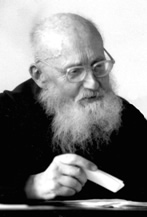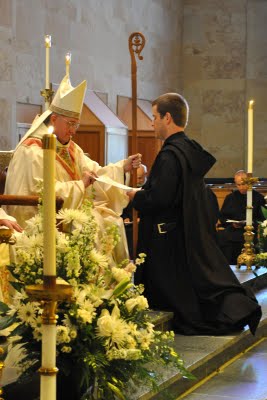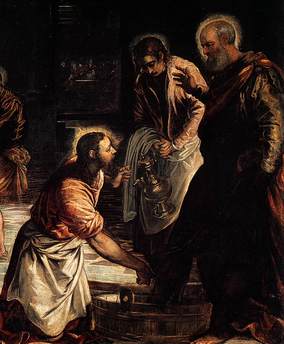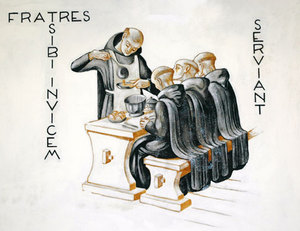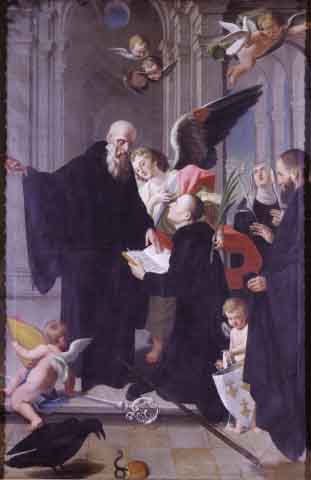I am slowly reading a book written by Dom Michael Casey, a Cistercian monk from the Abbey of Tarrawara (Australia), The Road to Eternal Life, a series of reflections on the Prologue of the Rue of St Benedict. With all the talk of being a good witness and yesterday’s emphasis on our destiny in Christ, I thought Dom Michael’s reflection on boasting in the Lord makes some sense for us today. I recommend the book.
“And again he says, ‘Let the one who boasts, boast in the Lord’.” (2 Cor 10:17 quoted in the Rule of St Benedict, Prologue v. 32)
The one in the New Testament who speaks most about boastfulness is Saint Paul. He sees boasting as an expression of an autonomy that weakens a person’s total reliance on God-that is, it weakens faith. Those who think that religion is simply a matter of conforming to the precepts of the law, or perhaps so twisting the precepts of the law so that they are comfortable, have not yet learned the art of putting their trust in God, relying on God’s mercy. They are locked into the schemes of self-perfection that they themselves have crafted. The end of such self-assurance can be only disaster. As Saint Ignatius of Antioch wrote to Polycarp, “The one who boasts has already come to nothing”.
Continue reading Be living sacraments of Christ’s presence in the world leading all to eternal life
